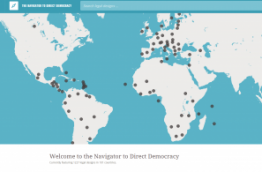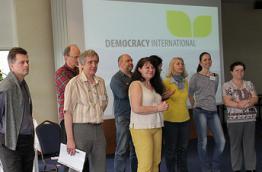I hope the new year started well for you. In Germany, 2015 began with protests of "Pegida", an alliance of right-wing "patriots protesting against the islamisation of the Western World". As a result of conflicts within the alliance, the spokesperson resigned at the end of January and announced to establish a movement for direct democracy in Europe. Oh no, I thought, that's grist to the mill to those who oppose direct democracy with the argument that it enables the tyranny of right- and left-wing extremism.
For me the solution is to control direct democracy with norms that base on universal human rights and the freedom and dignity of every individual. In that way referenda on sensitive issues can take place even with low turnout quorums. This judicial control paired with low barriers to direct democracy will allow concrete outcomes, new laws and more effective decision-making.
As it seems to me right now, these high-quality forms of direct citizens' involvement are crucial for two reasons: Firstly, they are an instrument to realise citizens' political decision-making with the result that more citizens will feel included. Secondly, when people know what direct democracy really is about, it will be more difficult to misuse "direct democracy" for populist purposes. In this context, this newsletter and our next events (Global Forum in Tunis, see below) for more direct democracy in Europe and the world.
Best regards,
Cora Pfafferott






